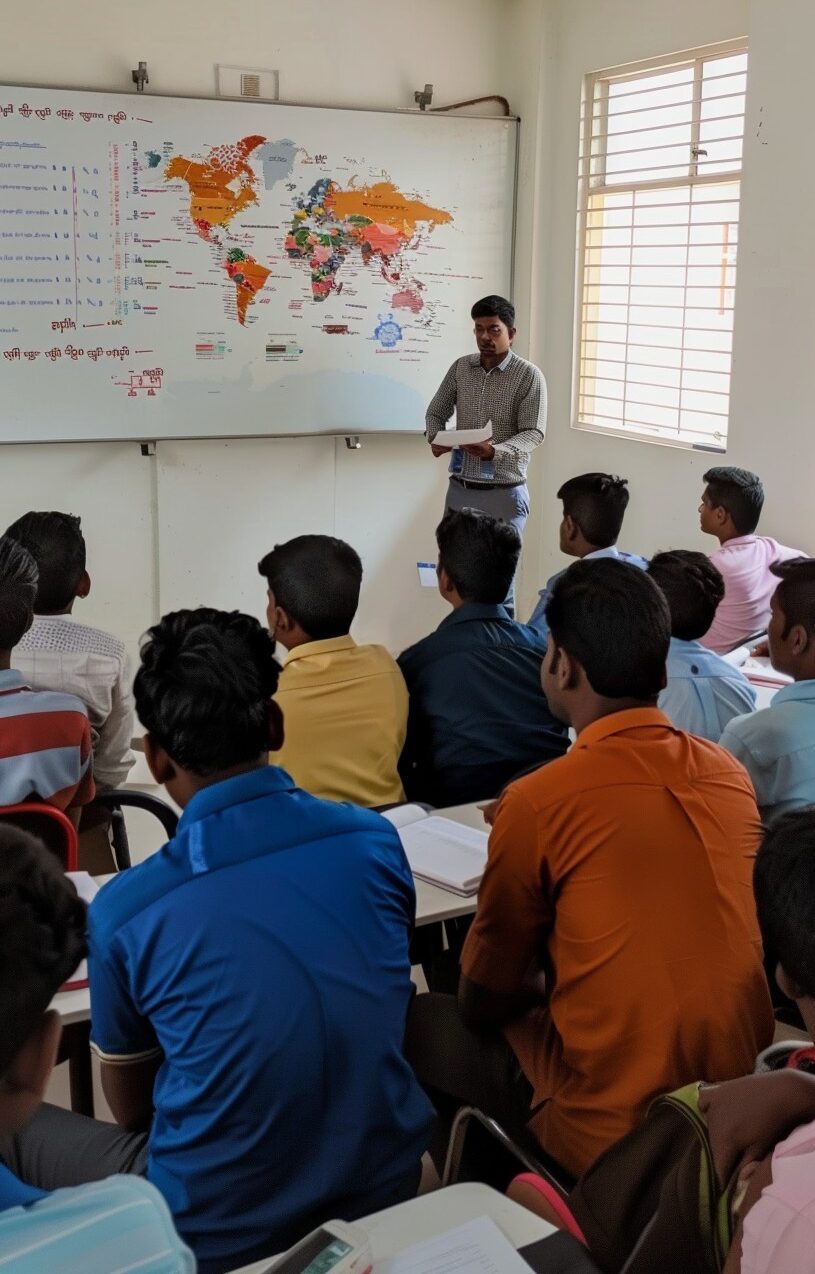Cracking the UPSC Civil Services Examination (CSE) in one year is an ambitious but achievable goal. With proper planning, determination, and an effective strategy, you can maximize your chances of success. The UPSC exam is one of the toughest and most prestigious exams in India, requiring a thorough understanding of a wide range of subjects, as well as the ability to think critically and apply knowledge in a practical context.
1. Understanding the UPSC Exam Structure
Before you dive into preparation, it’s crucial to understand the structure of the UPSC Civil Services Examination. The exam is conducted in three stages:
1.1. Preliminary Exam (Prelims)
The Prelims is the first stage of the examination and acts as a screening test. It consists of two papers:
- General Studies (GS) Paper I: This paper covers a broad range of topics, including History, Geography, Polity, Economy, Environment, Science and Technology, and Current Affairs. It consists of 100 questions, each carrying two marks, making a total of 200 marks.
- Civil Services Aptitude Test (CSAT) Paper II: This paper tests your logical reasoning, analytical ability, decision-making, and comprehension skills. It is qualifying in nature, meaning you need to score a minimum of 33% to pass. It consists of 80 questions, each carrying 2.5 marks, totaling 200 marks.
1.2. Main Exam (Mains)
The Mains exam is a written examination and is more subjective in nature. It consists of nine papers:
- Essay: You are required to write two essays, each on a topic from a given set. This paper tests your ability to articulate ideas and present them coherently.
- General Studies I-IV: These four papers cover a wide range of topics:
- GS Paper I: Indian Heritage and Culture, History, and Geography of the World and Society.
- GS Paper II: Governance, Constitution, Polity, Social Justice, and International Relations.
- GS Paper III: Technology, Economic Development, Bio-diversity, Environment, Security, and Disaster Management.
- GS Paper IV: Ethics, Integrity, and Aptitude.
- Optional Subject Paper I and II: You choose one optional subject from a list provided by UPSC, and these two papers test your knowledge in that subject.
- Qualifying Papers: There are two qualifying papers: one in English and one in a regional language of your choice. These are of a high school level and are intended to test your basic language skills.
1.3. Personality Test (Interview)
The final stage of the exam is the Personality Test or Interview, where you are assessed on your personality, communication skills, and overall suitability for a career in civil services. The interview panel will ask questions related to your background, your views on current affairs, and hypothetical situations to gauge your problem-solving skills.
2. Setting a Clear and Achievable Strategy
Given the vast syllabus and the complexity of the exam, setting a clear and achievable strategy is essential for effective preparation. Here’s how you can approach it:
2.1. Understanding the Syllabus
The first step is to thoroughly understand the syllabus for both Prelims and Mains. UPSC provides a detailed syllabus for each stage of the exam. Break down the syllabus into smaller sections and create a study plan that covers each part systematically.
2.2. Prioritizing Topics
Not all topics carry equal weight, and some are more frequently asked than others. For instance, in Prelims, topics like Polity, Environment, and Current Affairs tend to have a higher weightage. For Mains, understanding and analyzing current events, as well as developing an ethical perspective, are crucial. Identify high-yield topics and prioritize them in your study plan.
2.3. Integrating Prelims and Mains Preparation
Since there is a significant overlap between the Prelims and Mains syllabus, it is wise to integrate your preparation. For example, while studying Indian Polity, make notes that can be useful for both Prelims (factual information) and Mains (analytical aspects). This approach saves time and ensures that you build a strong foundation in core subjects.
3. Daily and Monthly Planning
Effective time management is key to covering the vast syllabus within a year. Here’s how you can structure your daily and monthly study plan:
3.1. Daily Schedule
- Morning Routine:
- Start your day with current affairs. Reading a newspaper like The Hindu or Indian Express is essential for staying updated with national and international news. Make concise notes on important issues.
- Follow this up with a revision of what you studied the previous day to reinforce your learning.
- Forenoon:
- Dedicate this time to studying core subjects. Start with subjects that require deep understanding, such as History or Geography.
- Use standard reference books like NCERTs for building a strong foundation, followed by advanced books like Laxmikant’s Indian Polity or Spectrum’s Modern History.
- Afternoon:
- After lunch, focus on your optional subject. This time is crucial for developing an in-depth understanding of your chosen subject. Make sure you are thorough with the syllabus and have a strong grip on the basics.
- Alternatively, you can also use this time for practicing answer writing for Mains. Writing practice is crucial for improving your expression and clarity of thought.
- Evening:
- Use this time for revision and practicing multiple-choice questions (MCQs) for Prelims. This will help you develop speed and accuracy, which are crucial for clearing the Prelims.
- You can also allocate some time to work on improving your CSAT skills, especially if you find it challenging.
- Night:
- Wind down your day with light reading. This could include going through current affairs magazines like Yojana, Kurukshetra, or revising your notes.
- Review your day’s work and plan the next day’s schedule before going to bed.
3.2. Monthly Goals
Setting monthly goals helps you stay on track and ensures that you cover the syllabus systematically:
- Month 1-3: Focus on building a strong foundation. Complete basic readings of NCERT books for History, Geography, Polity, Economy, and Science. Simultaneously, start with your optional subject and finish at least 50% of the syllabus.
- Month 4-6: Move on to advanced books and start revising the basic concepts. Begin answer writing practice for Mains and take weekly mock tests for Prelims. Complete the syllabus of your optional subject.
- Month 7-9: Intensify your revision. Focus on solving previous years’ question papers and take full-length mock tests for both Prelims and Mains. Refine your answer writing skills by practicing under timed conditions.
- Month 10-12: The final three months should be dedicated to revision, taking mock tests, and refining your strategy based on test performances. Focus on strengthening weak areas and fine-tuning your exam strategy.
4. Choosing the Right Optional Subject
The optional subject plays a crucial role in your Mains score. Choosing the right subject is a critical decision that can significantly impact your final ranking:
4.1. Factors to Consider
- Interest and Background: Choose a subject you are genuinely interested in or have a background in. If you have a strong foundation in a particular subject, it will be easier to prepare.
- Availability of Resources: Ensure that there is ample study material and guidance available for the subject you choose. Some subjects have more resources available than others.
- Scoring Potential: Some subjects have a higher scoring potential based on past trends. Research the performance of different subjects in the UPSC exam to make an informed choice.
- Overlap with GS Papers: Some optional subjects like Public Administration, Sociology, and Political Science have significant overlap with General Studies papers. Choosing such subjects can help in reducing your overall workload.
5. Mastering Current Affairs
Current affairs play a vital role in both Prelims and Mains. A well-rounded understanding of current events is essential for answering questions across various subjects:
5.1. Developing a Routine
- Daily Newspaper Reading: Dedicate at least one hour daily to reading a newspaper. Focus on editorials, opinions, and major national and international news.
- Monthly Magazines: Supplement your daily reading with monthly current affairs magazines like Yojana, Kurukshetra, and Pratiyogita Darpan. These magazines provide a deeper analysis of current issues.
- Online Sources: Follow reliable online sources like PIB, Rajya Sabha TV, and online current affairs websites for additional information. Make notes from these sources and revise them regularly.
5.2. Making Effective Notes
- Conciseness: Your notes should be concise and to the point. Avoid copying entire paragraphs from sources. Instead, focus on summarizing the key points.
- Regular Revision: Regularly revising your current affairs notes is crucial. Set aside time each week to go through your notes and update them with new information.
- Integration with GS Preparation: Integrate current affairs with your General Studies preparation. For example, while studying Polity, link current events with constitutional provisions or government schemes.
6. Answer Writing Practice for Mains
Answer writing is a skill that can make or break your Mains performance. Developing the ability to write well-structured, coherent, and concise answers is essential:
6.1. Start Early
- Begin Answer Writing Practice: Start practicing answer writing as early as possible. Initially, focus on writing short answers and gradually move on to full

